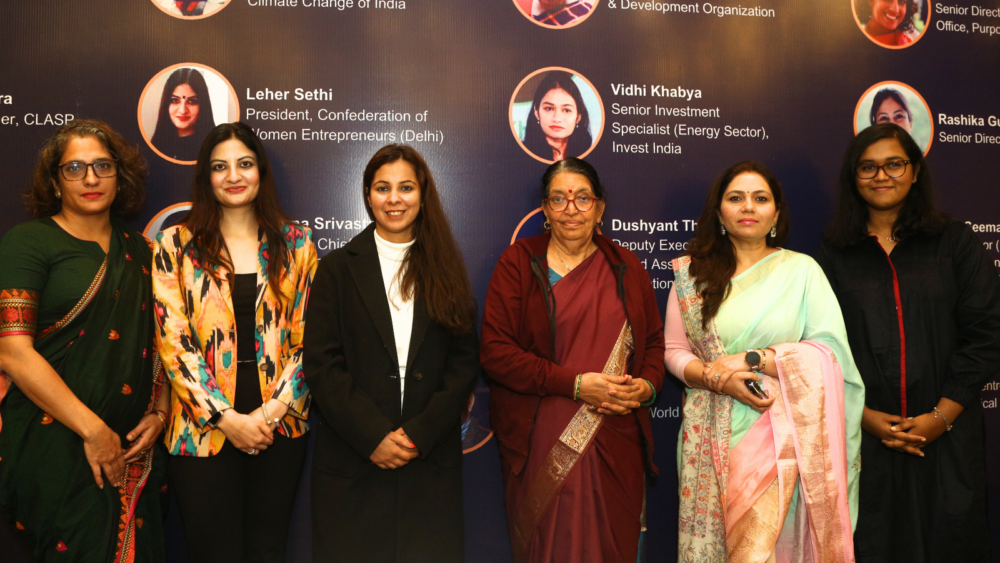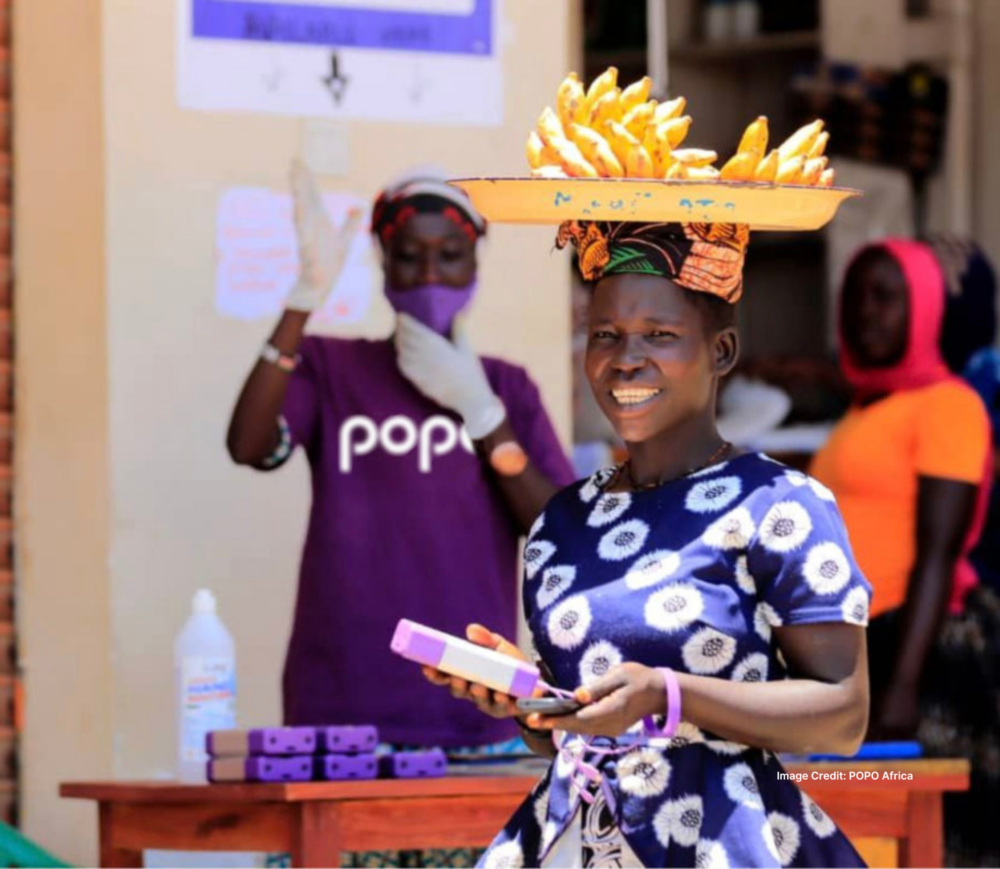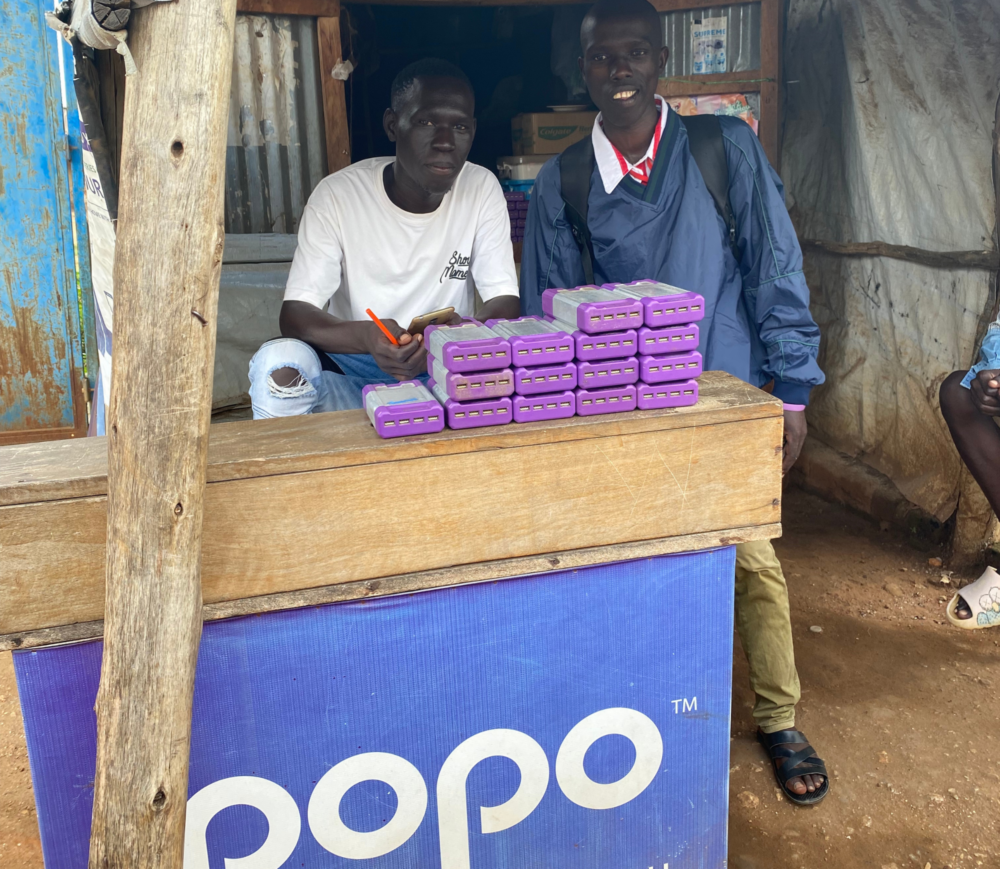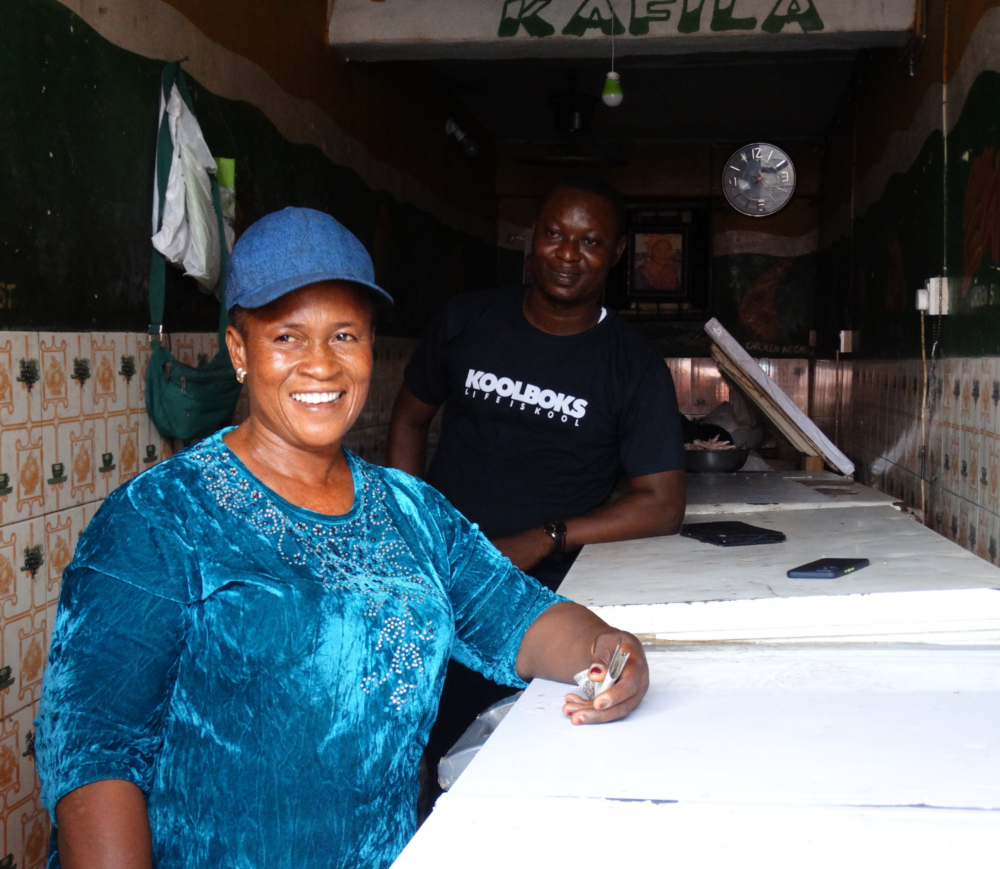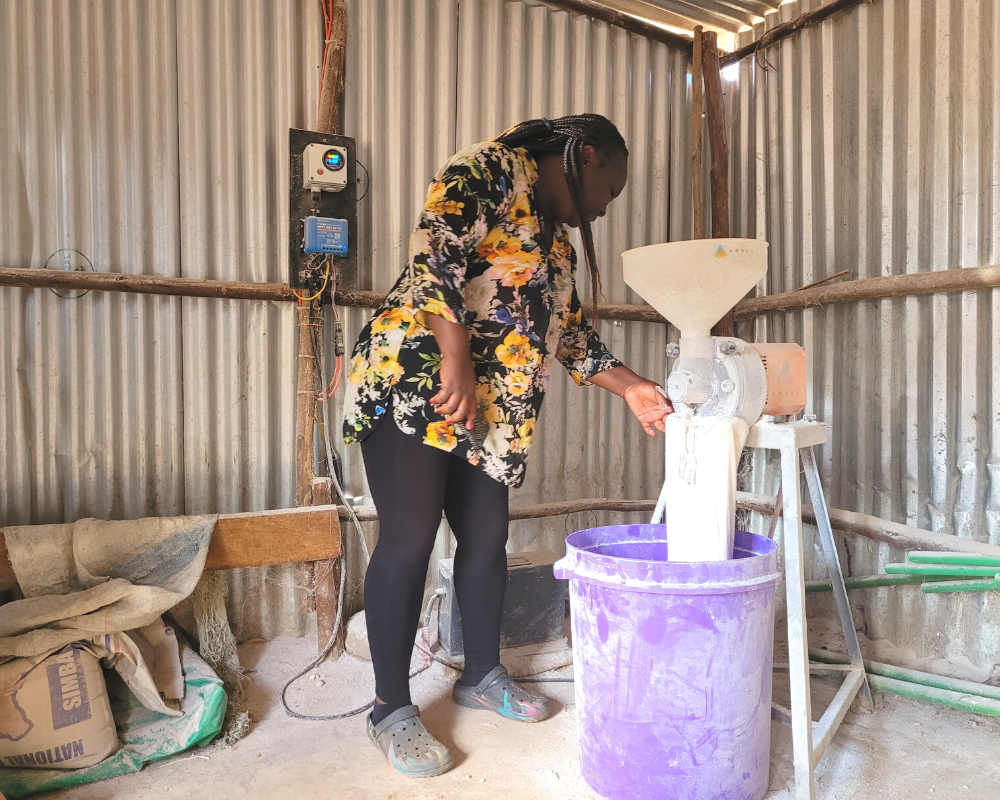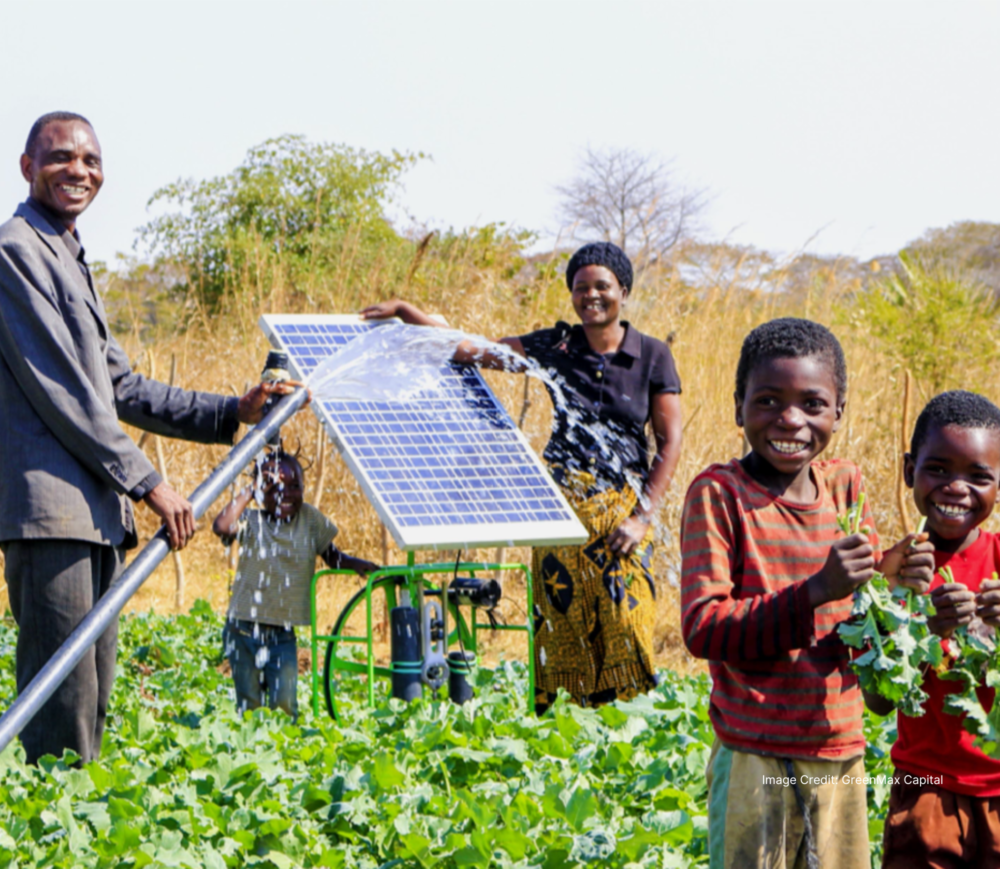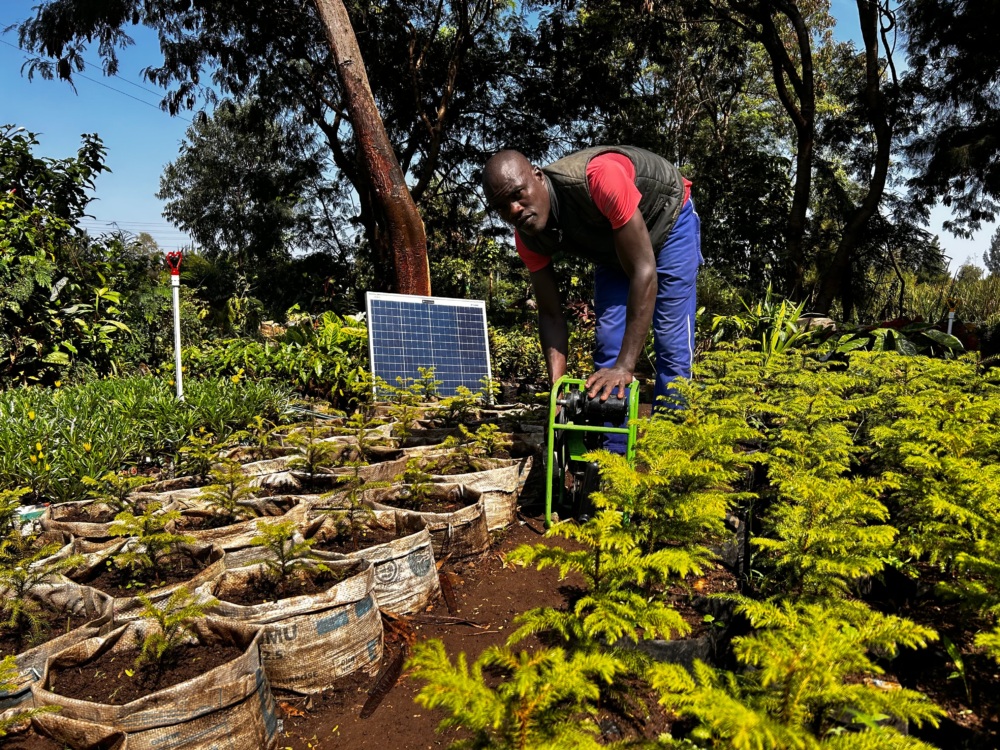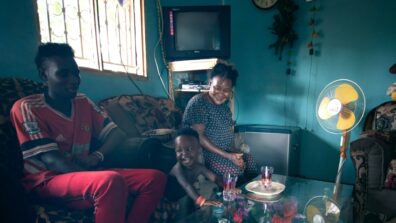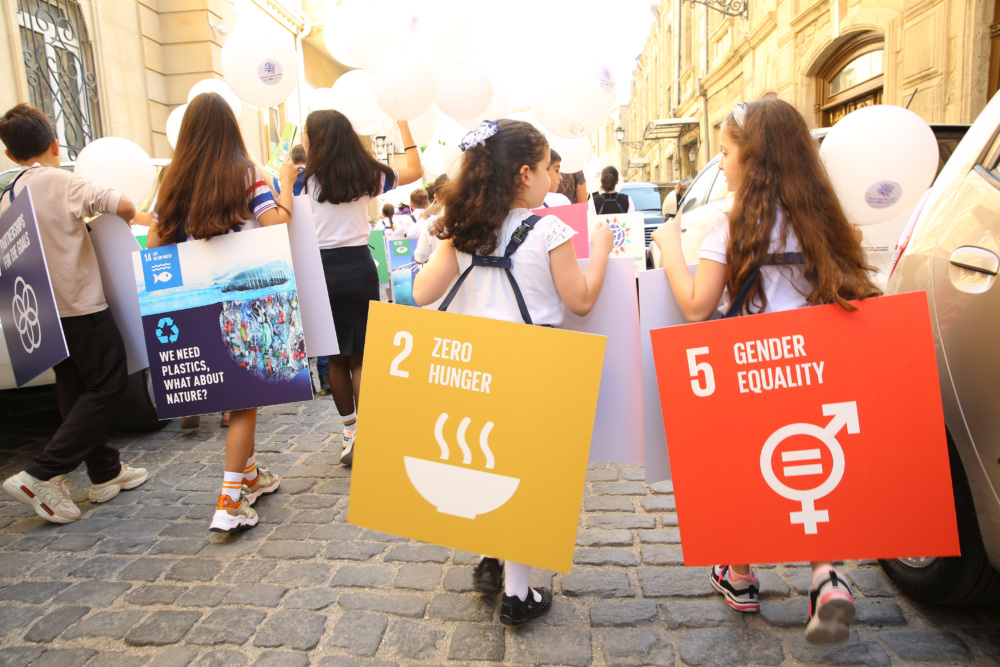Tackling Water and Energy Inequality in the Favelas of Rio
Community youth and leaders generate data by and for the favelas on inequalities in water and energy access and quality.
The Sustainable Favela Network (SFN), Favelas Unified Dashboard, and RioOnWatch are initiatives of the NGO Catalytic Communities (CatComm). The course “Researching and Monitoring Water and Energy Justice in the Favelas,” was carried out collaboratively by the following organizations: Roots in Movement, ICICT and EPSJV (Fiocruz), Climate and Society Institute, CLASP, LabJaca, DataLabe, and Casa Fluminense.
In September 2022, Rio de Janeiro’s Sustainable Favela Network (SFN) and Favelas Unified Dashboard published the report “Water and Energy Justice in the Favelas: Community Researchers Gather Data Revealing Inequalities and Calling for Action.”
The publication was the culmination of an intensive 6-month research course “Researching and Monitoring Water and Energy Justice in the Favelas,” engaging two youth and one leader from each of 15 favelas in Rio de Janeiro (45 people in total) to learn the entire arc of research, from why it’s important for their communities, to the development of useful indicators, all the way through how to report and advocate using data produced. As one of seven modules, participants generated “data by and for the favelas.”
CLASP collaborated with Catalytic Communities (CatComm), an NGO that has supported favela community organizers since 2000 and which facilitates the Sustainable Favela Network and Favelas Unified Dashboard. We contributed expertise on energy efficiency, leading intro to energy efficiency and policy sessions and helping community organizers develop indicators used in the survey. In the courses, we emphasized the connection between energy efficiency and electric bills, and how data are used in policymaking processes.
The Energy Needs of Underserved Favelas
Favelas are informal communities that emerge from an unmet need for affordable housing. Although a common English translation is “slums,” this term carries a negative connotation that fails to honor the unique historical consolidation and cultural context of favelas in Brazil. In Rio de Janeiro, most favelas are over 50 years old and some 24% of the population lives in these communities.
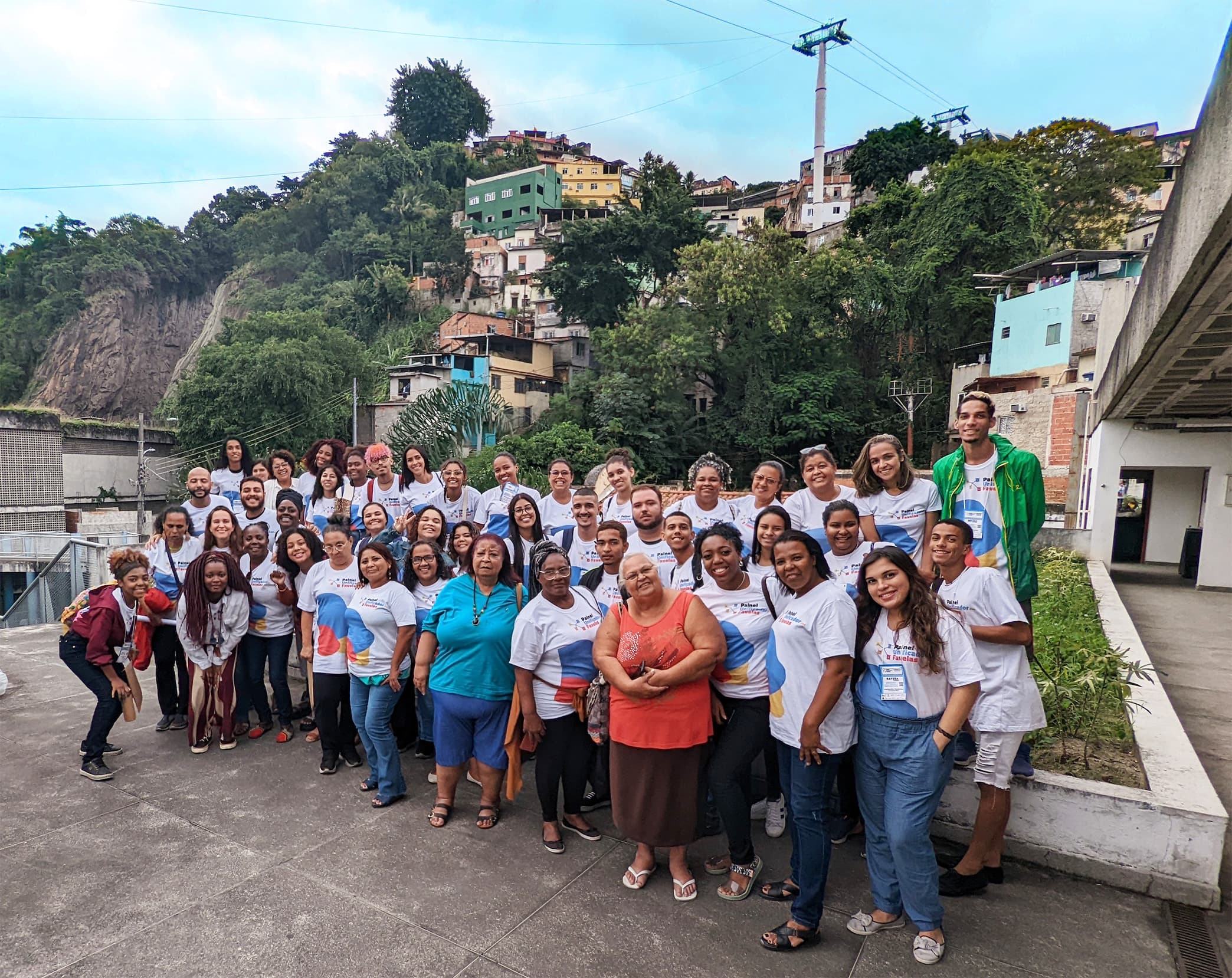
The course was created for youth in the favelas to better understand the importance of data — including how to collect, analyze, understand, and use it to communicate community needs. Community members collecting data of use to them and using it for advocacy represents an effort to remedy the underrepresentation of low-income populations in policymaking processes.
We spoke with Kayo Moura, a graduate student completing his second degree in Statistics, who led many of the course sessions centered on data and analysis for the reports. Kayo also served as the local leader for the Jacarezinho favela in the survey, drawing from his work with LabJaca, one of the 15 community organizations involved with the course, focused on “research, training, and production of data and narratives about favelas and peripheries.”
Kayo was raised across the Guanabara Bay in Niterói by a single mother who always encouraged him to study hard — so he did, earning a scholarship to the private Pontifical Catholic University (PUC) of Rio de Janeiro. After living in different places in and around favelas, interacting with PUC’s surrounding neighborhood with a high population of wealthy and white students, was eye-opening.
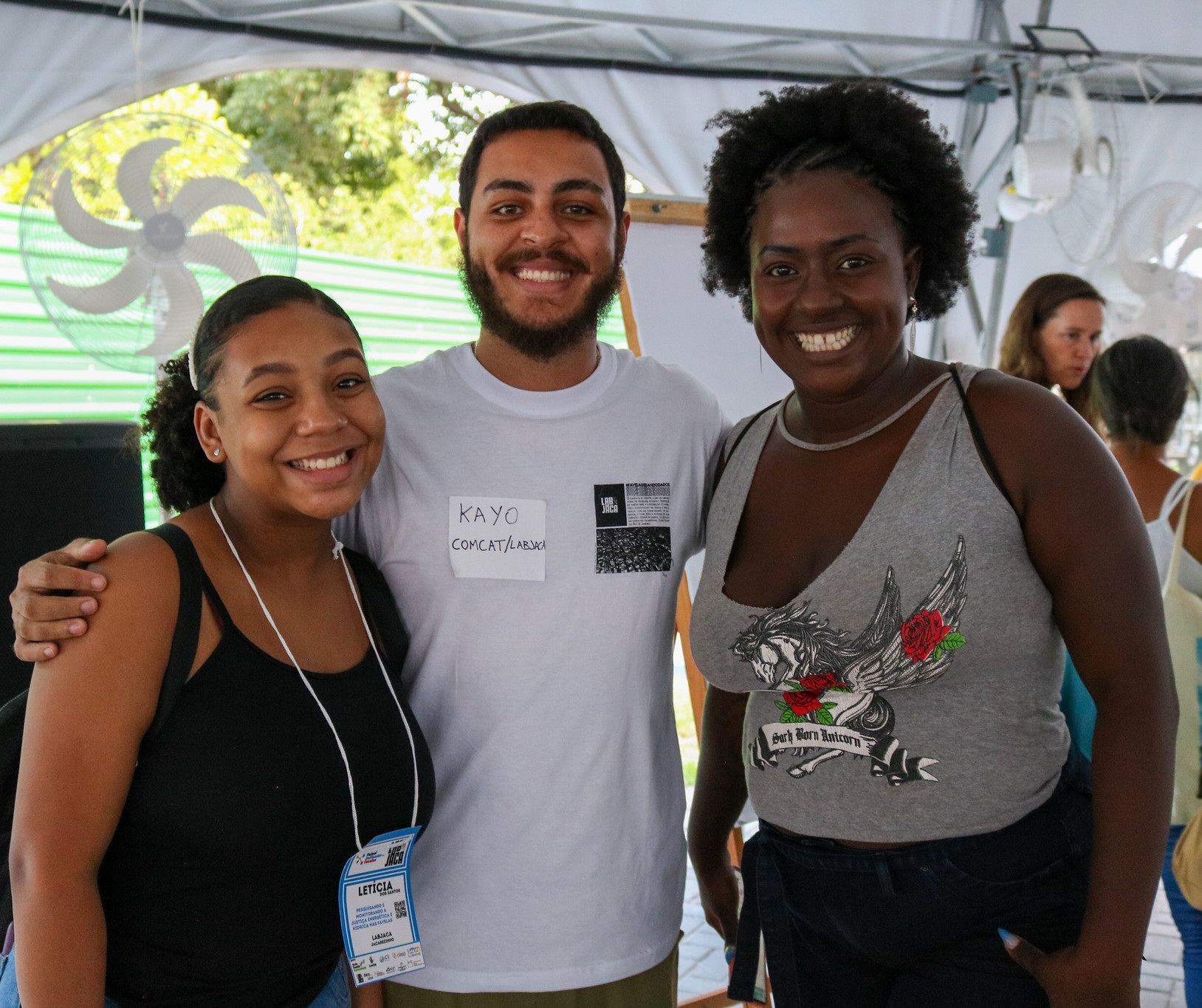
“I realized that everything I ever achieved in my life was thanks to public policies that supported me in getting to those places. That’s when I decided I was going to study and work toward public policies and projects that train and educate people, enabling them not just to transform their own lives but also to transform their communities.”
Kayo Moura
LabJaca, Sustainable Favela Network
This commitment led Kayo to the research course, designed to help youth better understand the extent of the injustices they have experienced in their respective communities and the role they can play in addressing them. “It is people with similar problems, or perhaps with different ones, sharing their experiences and lessons learned that strengthens and enhances everybody’s work. That is what happened during the course.”
Energy Efficiency Improves Energy And Water Access
Reducing energy demand is especially crucial now — climate change has diminished the reliability of Brazil’s hydroelectric power, and combined with turbulent economic conditions, more households are struggling with high energy burdens. When households cannot afford electric bills, they resort to siphoning electricity from the grid, known locally as using a “gato.”
“A resident turned to me and said that she had no reason to lie; she has a ‘gato’ because she doesn’t even have money for the basics in her house, let alone paying for electricity and water. But I told her that electricity and water are basics for human beings… that we deserve and need to survive.”
— Domênica Ferreira (Morro dos Macacos)
Utilities can decline to service areas with “gatos” or Areas with Severe Operational Restrictions (ASRO), which some favelas are categorized as due to the presence of armed criminal groups. During the data collection, Rio experienced the second deadliest operation in its history in Vila Cruzeiro, only surpassed by the operations in Jacarezinho just one year earlier. These conditions are an additional barrier preventing residents in the favela from accessing basic services.
When the Light Goes Out
In response to this lack of authorized access as well as very long response times from the electric utility (Light) when servicing favelas during blackouts, survey respondents indicated that they typically resolve electricity supply issues within the community. 30% turn to a community electrician and 21% solve the problem themselves, compared to only 38% who request service from the utility.
Poor access to public services was evident in the survey; within the last three months, 32% of households experienced a power outage and 26% had water services interrupted for longer than 24 hours. Inefficient products, in addition to raising energy costs for consumers, also contribute to strain on the electric grid, exacerbating the frequency and length of blackouts. Residents showed themselves concerned with efficiency, 67% indicating that they always choose LED bulbs.
Considering nearly half of respondents required a pump to receive water in their households due to water supply issues, the unreliable electric grid has serious implications on access to water. And of the water they do receive, over a quarter reported that it is discolored and has an abnormal taste. The confluence of these issues suggests the importance of further investigation of energy efficiency as a means of addressing poverty and access to basic human rights. This will be the focus of a second report, to be launched prior to Earth Day 2023.
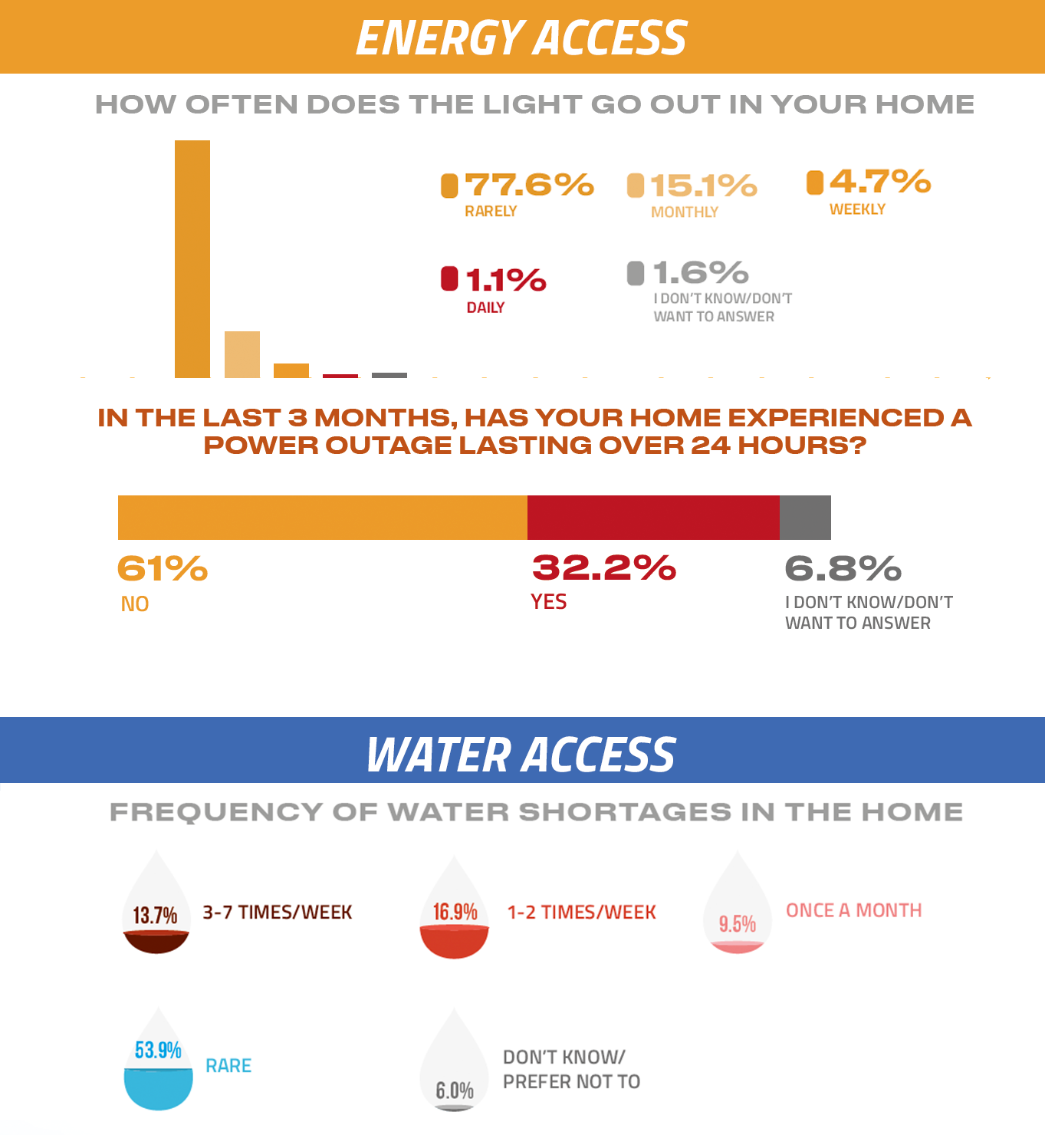
“One of the problems here is the cost of energy to supply water. To have water requires a lot of energy.”
Juliana Cesário
Cosmorama/Mesquita
This research has shown that collaboration is needed to design programs that provide meaningful benefits to underserved populations. As experts on their own needs and living conditions, residents play a critical role in designing both relevant surveys, and the solutions necessary for successful policy action.
Interested in learning more?
- Water and Energy Justice in the Favelas report (English)
- Insights into Energy Efficiency in the Favelas
- Research Is Also ‘By Us for Us!’ Leaders and Youth From 15 Favelas Prepare to Launch ‘Water and Energy Justice in the Favelas’ Report
- Comprehensive report (in Portuguese)
- 43 min documentary on the research course
- 5 min report launch video

